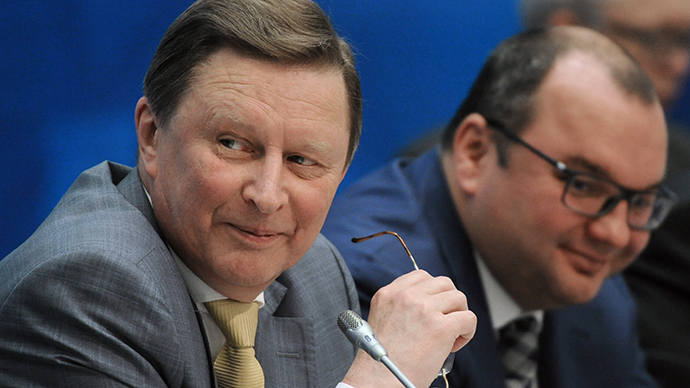Putin’s administration chief warns Russia may prolong counter-sanctions

The head of the Russian presidential administration has said it’s logical for Russia to prolong its counter-sanctions against Western nations after the G7 countries decided to continue their anti-Russian policies.
“As far as we know the recent G7 summit has prolonged sanctions against the Russian Federation. Therefore it’s logical for Russia to prolong its counter-sanctions,” Sergey Ivanov said on Wednesday, addressing the World Congress of Russian Press in Moscow.
Ivanov noted the whole sanctions exchange hadn’t been initiated by Russia. “As far as the cancellation of our counter-sanctions is concerned, I have worked in the Foreign Ministry for 15 years and I would put it diplomatically – I doubt that it will happen, this is extremely unlikely,” Tass quoted Ivanov as saying.
He also said that premature cancellation of counter-sanctions would be a “stab in the back” for Russian agricultural companies.
READ MORE: Russia ready to oppose any outside pressure - Medvedev
Earlier this month, Russian Prime Minister Dmitry Medvedev said if EU officials choose to tighten the regime of sanctions against Russia, a tit-for-tat reply would inevitably follow.
In April, PM Medvedev told top members of the parliamentary majority United Russia party the situation with sanctions demonstrated Russian society and authorities can jointly withstand any political or economic pressure from abroad.
Russia’s one-year ban on agricultural imports from sanctioning countries expires in August. The current restrictions are applied to meat, poultry, fish, cheese, milk, fruit and vegetables from the United States, the EU countries, Australia, Canada and Norway. When Russian introduced the embargo, it said it can be prolonged if foreign nations continue to apply pressure.












